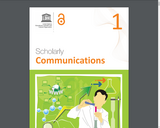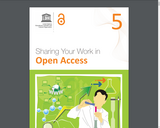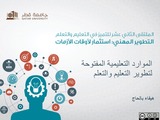
Researchers, scholars and scientists main business is scholarly communication. We communicate about our work to others, as we push the boundaries of what we know and the society knows. We question established notions and truths about science. We share our findings with others, and in a way that is popularly known as scholarly communication which emerged with the publication of first journal in 1665. However, the term gained popularity only in the 1970s, as access to peer reviewed and scholarly communication became difficult. This module has four units covering introduction to scholarly communication, peer reviewed journals, electronica journals and databases and the Serials Crisis. At the end of this module, the learner is expected to be able to:
- Explain philosophy, mission, and objectives of scholarly communication
- Describe the process of scholarly communication
- Identify different channels of scholarly communication
- Discuss the dysfunctioning of the scholarly communication
In Unit 1, Introduction to scholarly communication, we have discussed different aspects of scholarly communication – particularly its genesis, importance and ethics of academic publishing, and different communication channels available in academic publishing. Some of these channels are commonly described as primary sources as they provide first-hand testimony or direct evidence concerning a topic under investigation. Historically, scientific journals were initiated by learned societies and other scholarly communities for reporting results of concluded research works or scientific discoveries. Now many forprofit publishers have started publishing research journals.
Unit 2, Communicating with Peer Review Journals, covers two important academic publishing channels, namely peer reviewed journals, conferences and their proceedings. This Unit also highlights different methods and procedures of peer reviewing for publishing primary literature emanated from research studies. The peer reviewing is essential for validating quality of research findings conveyed by researchers, which are subject to fulfilment of ethical standards and appropriate research design, sampling and other methodological issues.
In Unit 3, Electronic journals and databases, we have discussed the emergence of electronic journals in academic and research environment due to wide proliferation of information and communication technologies (ICT) in research communications and academic publishing. Scientific communities and scientific communications from the global South are getting substantive attentions through adaptation of electronic journals and electronic academic databases in the process of research communications.
In Unit 4, the Serials Crisis, we discuss the cost of peer reviewed publications and the problems faced by researchers in developing countries. The focus of this unit is on highlighting the problems and discusses possible solutions including the emergence of open access as one of the solutions. Open access journal publishing helps in mitigating some of the problems associated with serials crisis.
This is Module One of the UNESCO's Open Access Curriculum for Researchers.
Full-Text is available at http://unesdoc.unesco.org/images/0023/002319/231938e.pdf
- Subject:
- Career and Technical Education
- Education
- Educational Technology
- Higher Education
- Material Type:
- Full Course
- Module
- Textbook
- Unit of Study
- Author:
- Anup Kumar Das
- Date Added:
- 09/12/2018

